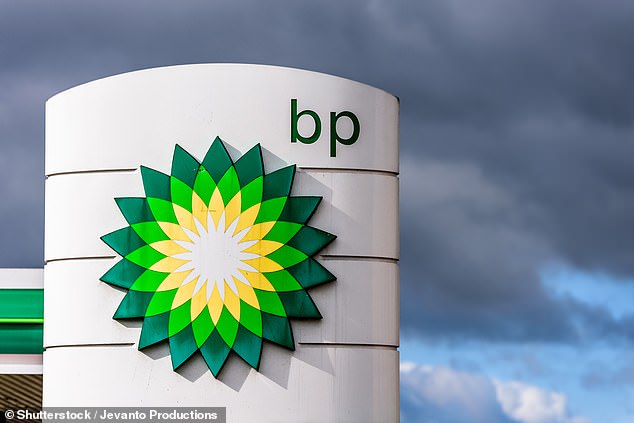Table of Contents
- BP plans to reduce crude processing capacity at its Gelsenkirchen oil refinery
- Built in 1935, the German facility can process 265,000 barrels of oil per day.
BP warned that impairment charges could rise to $2 billion in the second quarter, partly due to a review of a major European refinery.
The oil major announced plans in March to cut crude processing capacity at its Gelsenkirchen refinery in Germany by a third from next year due to expected weaker future demand.
The German facility can process 265,000 barrels of oil per day and comprises two plants and a petrochemical site.
Production targets: BP announced plans in March to cut crude processing capacity at its Gelsenkirchen oil refinery by a third from 2025 due to expected weaker future demand
BP posted $1.3 billion in losses at the refinery last year, which it said mainly reflected “changes in economic assumptions.”
The additional refinery charges are expected to contribute to “asset impairments and associated onerous contractual provisions” of between $1 billion and $2 billion for the April-June period.
The London-listed group warned that “significantly lower” refining margins in its customer segment would reduce second-quarter profits by between $500m and $700m (£391m and £547m).
BP shares had fallen 4.4 percent to 453.9 pence by early Tuesday afternoon following its latest trading statement, making it the biggest loser on the FTSE 100 index.
In May, BP revealed that its underlying profits almost halved to £2.2bn in the first three months of 2024 due to a fall in refining margins and oil and gas prices.
Gas prices continued to decline in the following quarter, averaging $1.89 per million thermal units, compared with $2.25/mmBtu in the first quarter.
However, Brent crude oil prices rose slightly from $83.16 per barrel to nearly $85 per barrel.
Fossil fuel prices remain above historical averages due to conflicts in Ukraine and the Middle East and as OPEC+ countries such as Saudi Arabia extend production cuts.
They began to rise sharply as Covid-19 restrictions began to ease, and BP has since enjoyed its two most profitable years on record: £23bn in 2022 and £11bn in 2023.
Strong results have allowed BP to reduce its debts while delivering generous returns to shareholders, including £10.2bn last year.
Under Murray Auchincloss, BP has also moderated its environmental plans amid pressure from investors, including suspending new offshore wind projects.
Derren Nathan, head of equity research at Hargreaves Lansdown, said BP was “likely to remain an important part of the energy mix for some time to come”.
“It still has its sights set on the energy transition and it seems that there will not be much downward pressure on the oil price in the immediate future. This should maintain cash flow and generous distributions to investors.”
DIY INVESTMENT PLATFORMS

AJ Bell

AJ Bell
Easy investment and ready-to-use portfolios

Hargreaves Lansdown

Hargreaves Lansdown
Free investment ideas and fund trading

interactive investor

interactive investor
Flat rate investing from £4.99 per month

eToro

eToro
Stock Investing: Community of Over 30 Million

Trade 212

Trade 212
Free and commission-free stock trading per account
Affiliate links: If you purchase a product This is Money may earn a commission. These offers are chosen by our editorial team as we believe they are worth highlighting. This does not affect our editorial independence.
Compare the best investment account for you


